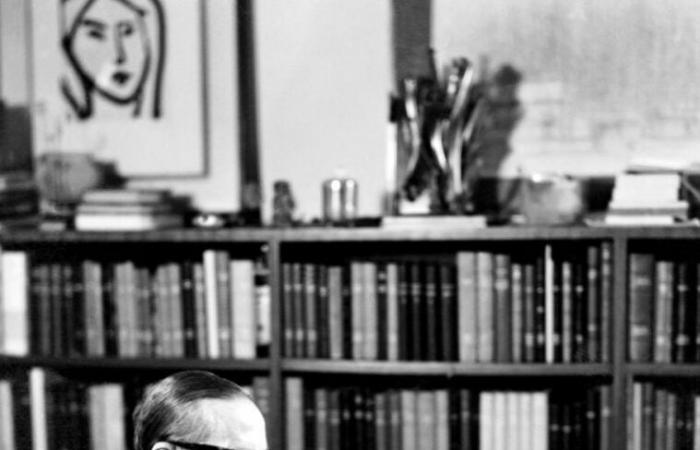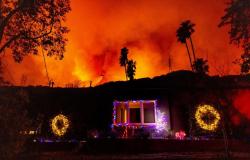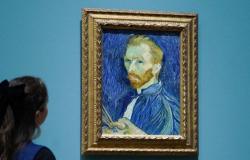This new format, more flexible and more accessible, has succeeded in maintaining the bridge between the two shores of the Mediterranean – broadening its horizons to receive, in addition to French and Lebanese authors, writers from all French-speaking countries – and in disseminating the literature in bookstores, museums, theaters and in the very heart of cities, without being conditioned by the purchase of a book.
On October 8, 2023, on this blazing afternoon, and while the second edition of the festival, crowned with success, was coming to an end on the terrace of the École Supérieure desaffaires (ESA), war was looming, leaving Beirut suspended between hope and anguish. Since then, the IF, fearing the worst but refusing to give in, had begun preparations for Beirut Livres 2024 which was to be held from October 21 to 27. Quite quickly, the deterioration of the security situation in summer required a complete revision of the initial ambitions and the transformation of the festival into a literary season was then considered. Demonstrating an unwavering determination to support cultural dynamics in Lebanon, with a particular emphasis on the Francophonie and books, the IF is now working to reactivate, during the first half of 2025, some of the postponed projects, and L’Orient literary, convinced more than ever that culture remains essential in times of crisis, is committed to highlighting these laudable initiatives. Thus, we are looking here at the second edition of the “Dreaming Lebanon” competition and the exhibition The Sensitive Library, which both lay the first stones of a program which will gradually be enriched and which we will be keen to share with our readers.
Young feathers at the heart of creative resistance
Since its creation, Beirut Livres has placed young people at the center of its concerns. Over the past year, the French Institute supported the second edition of the “Dreaming Lebanon” competition, launched in 2022 at the initiative of Riad Obégi, CEO of Bank BEMO, in partnership with other cultural actors , and allowing young Lebanese people to share their vision of a country in search of a future, despite the trials of daily life.
This year, the chosen theme, “The hidden gardens of Beirut”, inspired high school and university students, coming from the four corners of the country, to write stories in French, Arabic, or English. Celebrating multilingualism, this national initiative introduced a visual dimension to the stories this year, with each text accompanied by a photograph.
Among the stories submitted, a participant recounts the intimate relationship between a mother and her garden in a house in Beirut. Another text evokes the Sursock garden, ravaged by the explosion of August 4, 2020, witness to a forbidden romance revealed through a series of letters dating from the 1970s, between two lovers separated by the Lebanese civil war. These examples, among many others, illustrate the diversity of perspectives taken by young people who knew how to explore the indelible marks left by history and tragedies on places and lives.
63 selected young authors, including 18 winners, will see their short stories published in a collection published by the Antoine bookstore, which will be given to them at the Salle Montaigne of the French Institute, as part of Beirut Livres, on January 18, 2025, at 11 h.
Although the political and social situation has disrupted some dates, the competition will continue into 2025, with a launch scheduled for April 13 and an awards ceremony scheduled for Independence Day.
The memory of books
Thanks to the support of the French Institute, the exhibition The Sensitive Library will find its setting at the Oriental Library, rue Monnot, in 2025. Inspired by the striking portrait of Georges Schéhadé, produced by the photographer Varoujan Sétian, where the writer seems to devour a book, this installation, signed Caline Aoun, explores the idea of the book as a living object, both physical and symbolic.
The artist’s thoughts first turned to the assimilation between reading and digestion, a theme evoked by numerous writers, including Francis Bacon who asserted: “There are books of which one must only taste, others which must be devoured, others finally, but in small numbers, which must, so to speak, be chewed and digested. » This classification, which distinguishes different levels of engagement with writings, pushed Aoun to magnify this intimate interaction between the reader and the object.
The Sensitive Library unfolds around an immense plaque made from pulp pages of collected books, materializing the accumulation of knowledge over time. Monumental and poetic, it dialogues with quotes from Lebanese authors, sanded on the library tables, and celebrates not only the content of the works, but also their materiality: the folds, the marks, the annotations which inhabit the pages and which bear witness to our physical and intellectual communion with books… So many human traces that digital technology cannot reproduce.
This permanent exhibition, the opening of which is scheduled for Saturday February 1, 2025, at 11 a.m., is an invitation to rediscover the tangible essence of the book and its timeless power. A work where every detail whispers the idea that, sometimes, the silence of the pages resonates louder than the cries of the world.
This new format, more flexible and more accessible, has succeeded in maintaining the bridge between the two shores of the Mediterranean – broadening its horizons to receive, in addition to French and Lebanese authors, writers from all French-speaking countries – and in disseminating the literature in bookstores, museums, theaters and in the very heart of cities, without being…
- -





